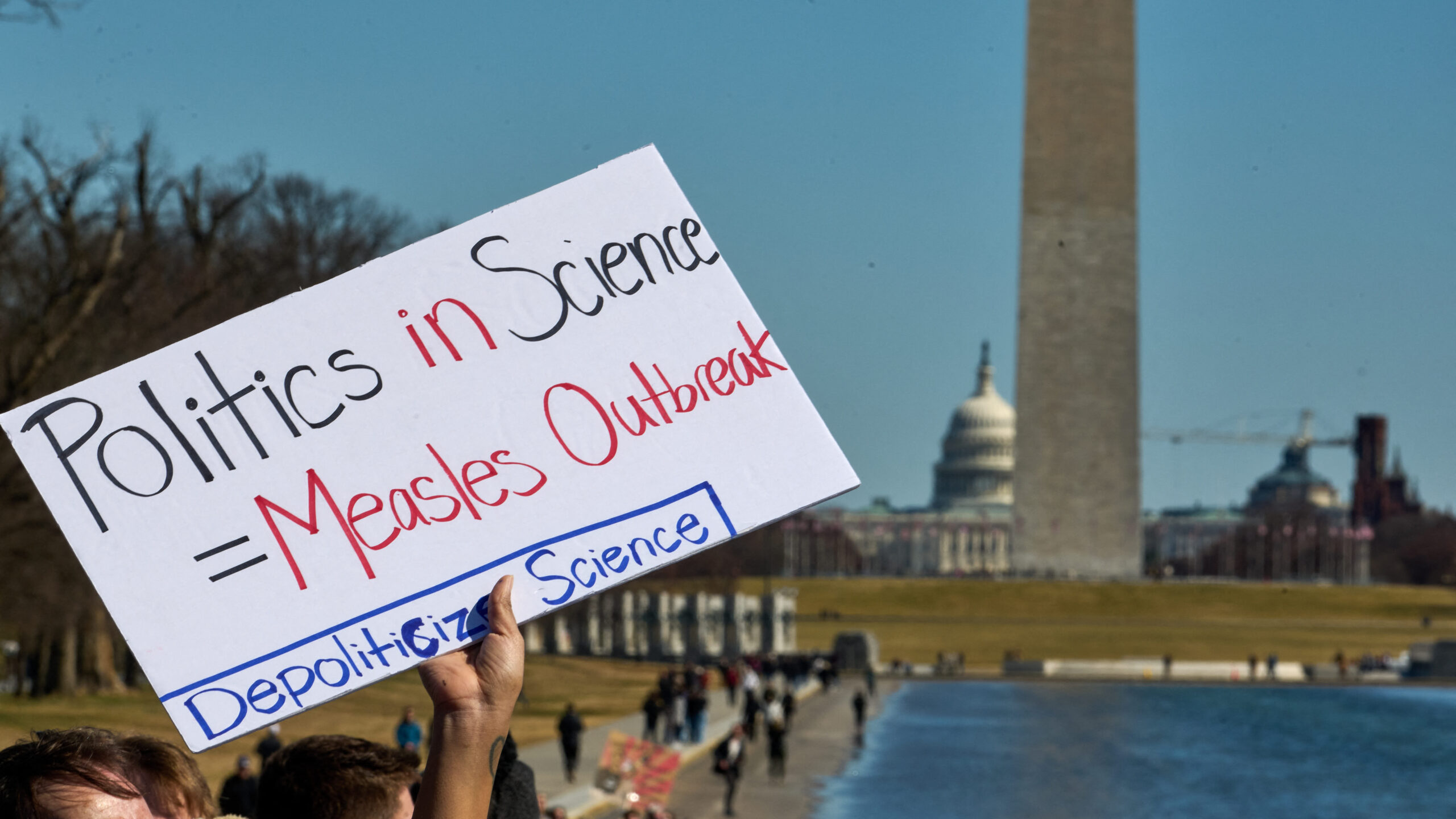Science
Congress Pushes Back Against Administration’s Science Funding Cuts

The ongoing conflict over science funding in the United States has intensified as Congress moves to oppose cuts proposed by the Trump administration. Recent actions in the Senate have allocated research funding at levels comparable to previous years, defying the administration’s attempts to limit resources for scientific inquiry. This unexpected development may set the stage for a significant confrontation between a Congress committed to supporting science and an administration that appears indifferent to its value.
Congress’s Unexpected Support for Science
Despite a budget proposal from the administration that would severely restrict funding for research, recent appropriations in the Senate have maintained financial support for scientific agencies. This shift suggests that Congress is prepared to challenge the administration’s priorities. Historically, funding for science has received bipartisan support, but this spring marked a potential turning point when Congress passed the Trump administration’s 2026 budget outline with overwhelming Republican backing. This decision initially indicated a departure from bipartisan consensus, as it included substantial cuts to scientific funding.
The U.S. budget process involves two critical steps: the establishment of budgetary plans and the actual appropriation of funds. Although Republicans supported Trump’s budgetary priorities, the Senate has recently acted as if bipartisan cooperation is still viable, approving appropriations that mirror the funding levels established under President Biden.
Challenges Ahead
While Congress’s newfound independence in funding science is encouraging, it faces several significant challenges moving forward. Most of the recent appropriations have occurred in smaller committees rather than through full Senate votes, raising concerns about the sustainability of this support during more prominent legislative discussions. Additionally, any funding measures are likely to be combined with other budget priorities that could complicate bipartisan agreement.
The House of Representatives, characterized by shorter terms and a more radical membership, may present additional obstacles to securing favorable funding conditions. Ultimately, any agreement must be packaged into a budget deal that the administration deems essential, even if certain provisions contradict its priorities.
For Congress to safeguard scientific funding effectively, it must not only allocate more resources than the administration requested but also implement language that restricts the influence of the Office of Management and Budget (OMB) and other agencies. The OMB, led by Russell Vought, has established various mechanisms to delay or obstruct the approval of research grants. Reports indicate that these methods include ideological assessments for grant approvals and limits on agency spending, which could prevent agencies from fully utilizing their annual budgets.
A recent executive order has formalized these approaches, introducing new rules that render peer review optional while instituting ideological criteria for funding evaluations. Under these conditions, even approved grants can be rescinded at any moment, allowing the administration to effectively slow the distribution of funds authorized by Congress.
Congress faces the daunting task of not just maintaining funding levels but ensuring that allocated resources translate into tangible support for scientific research. Previous attempts to counteract similar policies during the first Trump administration provide a precedent for potential legislative responses. Lawmakers successfully included provisions to prevent cuts to university funding that had been proposed at that time.
The path forward for U.S. science funding remains fraught with uncertainty. If Congress pursues measures to limit OMB’s authority over research funding, it may trigger a confrontation with the administration, potentially leading to legal battles. Should such disputes reach the Supreme Court, the outcome remains unpredictable, particularly given the current composition of the Court under Chief Justice John Roberts.
While the recent actions in the Senate offer a glimmer of hope for the future of science funding, they represent just the beginning of a prolonged struggle. The commitment to maintaining the U.S. research enterprise at levels that have historically positioned it as a global leader will require persistent effort and strategic legislating.
-

 Science3 months ago
Science3 months agoToyoake City Proposes Daily Two-Hour Smartphone Use Limit
-

 Top Stories3 months ago
Top Stories3 months agoPedestrian Fatally Injured in Esquimalt Collision on August 14
-

 Health3 months ago
Health3 months agoB.C. Review Reveals Urgent Need for Rare-Disease Drug Reforms
-

 Technology3 months ago
Technology3 months agoDark Adventure Game “Bye Sweet Carole” Set for October Release
-

 World3 months ago
World3 months agoJimmy Lai’s Defense Challenges Charges Under National Security Law
-

 Lifestyle3 months ago
Lifestyle3 months agoVictoria’s Pop-Up Shop Shines Light on B.C.’s Wolf Cull
-

 Technology3 months ago
Technology3 months agoKonami Revives Iconic Metal Gear Solid Delta Ahead of Release
-

 Technology3 months ago
Technology3 months agoApple Expands Self-Service Repair Program to Canada
-

 Technology3 months ago
Technology3 months agoSnapmaker U1 Color 3D Printer Redefines Speed and Sustainability
-

 Technology3 months ago
Technology3 months agoAION Folding Knife: Redefining EDC Design with Premium Materials
-

 Business3 months ago
Business3 months agoGordon Murray Automotive Unveils S1 LM and Le Mans GTR at Monterey
-

 Technology3 months ago
Technology3 months agoSolve Today’s Wordle Challenge: Hints and Answer for August 19









